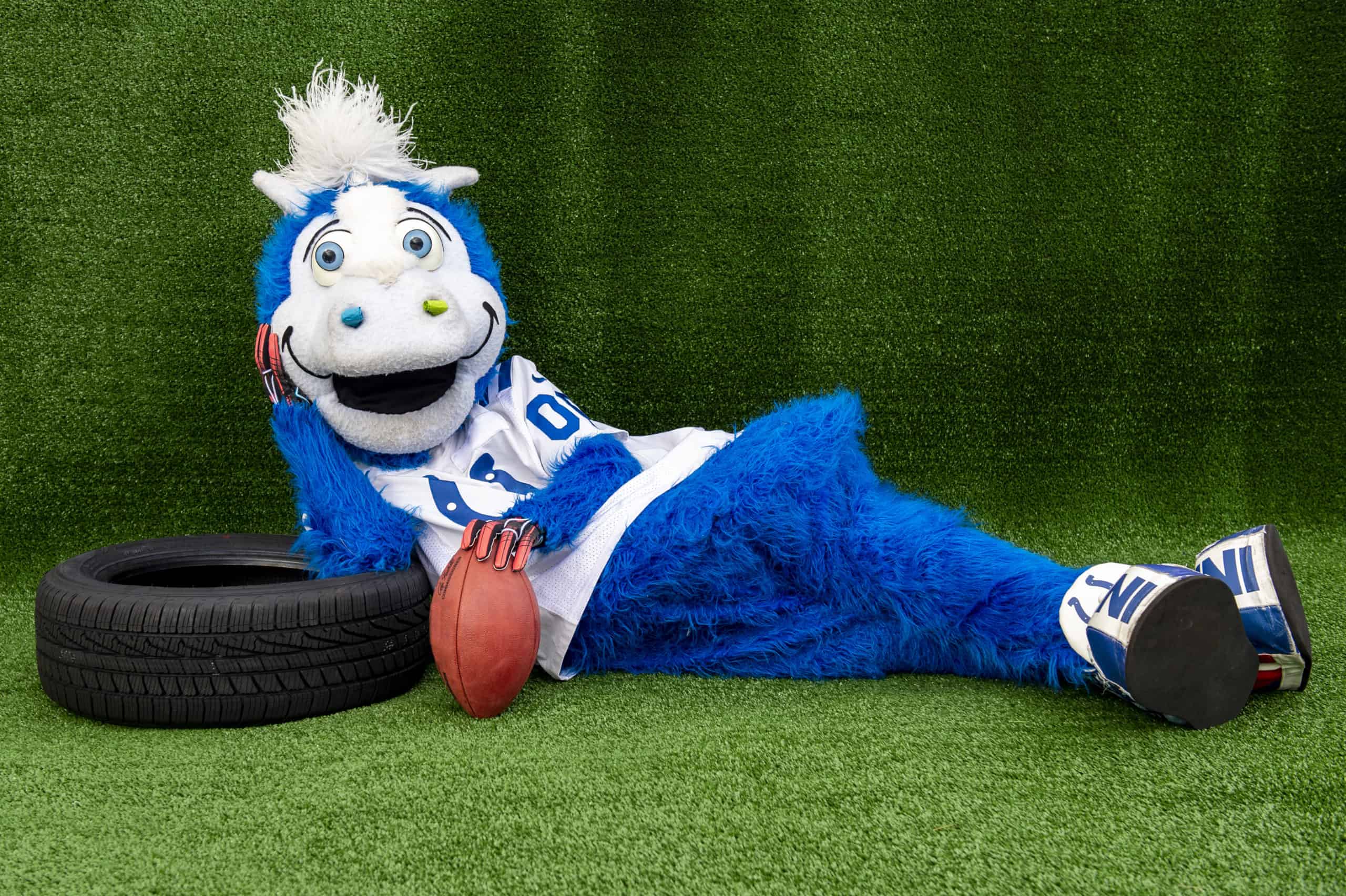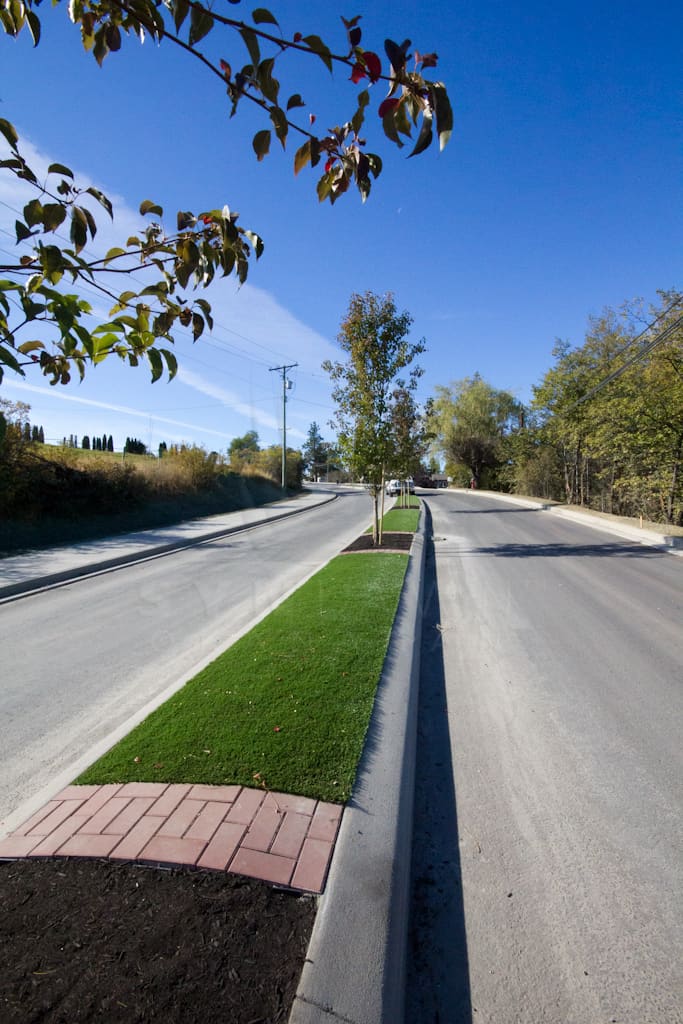From rooftops to road medians and rocket launch viewing sites, SYNLawn has installed 82 million square feet of U.S. soy-backed grass across 200,000 installations in the United States and 19 other countries since 2008. For 2021, North America’s largest manufacturer of artificial grass is set to add more soy than ever to its products, which will increase its use of U.S. soy by 10%.

Beechwood, Ohio and SYNLawn Northeast Ohio created a unique 22,000-square foot dog park that uses U.S. soy for performance and sustainability in all the artificial grass for turf-covered furniture as well as the play area that prevents muddy paws.
SYNLawn is a leader in the use of U.S. soybean oil to offer both performance and sustainability to its products,” said USB Director Jim Carroll, an Arkansas soybean grower and former USB Chairman. “USB has collaborated with SYNLawn to introduce the benefits of U.S. soy to their customers in diverse locations ranging from New York City to the Kennedy Space Center Visitor Complex in Florida.”
The Indiana Soybean Alliance, with support from USB and SYNLawn Indiana, is kicking off a new partnership featuring the soy-backed SYNLawn artificial grass in the Indianapolis Colts’ 2021 pre-game and traveling educational exercise programs to be held once COVID-19 limitations end. Children and adults will learn about soy in conjunction with the Colts’ popular “Touchdown Town” 40-yard dash across SYNLawn. On game day and all year round, kids throughout the state will have fun learning about football, fitness, and soybeans on the soy-backed grass rolled out for the Colts’ traveling interactive football drill for kids.

The Indiana Soybean Alliance, with support from the United Soybean Board and SYNLawn Indiana, is kicking off a new partnership featuring the soy-backed grass in Indianapolis Colts’ 2021 pre-game and traveling educational exercise programs to be held once COVID-19 limitations end. Photo credit: Indiana Soybean Alliance
“SYNLawn is pleased to announce that our success with U.S. soybean oil will grow in 2021,” said SYNLawn Executive Vice President George Neagle. “Our innovations and commitment to sustainability will allow us to increase our use of soybean oil in our backing systems by 10%. We are always looking for ways to practice environmental leadership whether it be in the content of the product or applications that solve erosion challenges or simply increasing the usable footprint of a facility.
“Thanks to strong domestic as well as international demand for our grass, we are experiencing double-digit market growth,” added Neagle. “We see a bright future for our use of U.S. soybean oil and look forward to further collaboration with America’s soybean growers and the United Soybean Board.”

Since 2014, SYNLawn has installed soy-backed grass in medians that offer water drainage for permeability as well as withstand salt and snow. Photo credit: SYNLawn Vancouver Island
SYNLawn communicates a positive soy message to customers in a variety of ways, spanning from its sustainability video to signage on its delivery trucks in New York City. Beachwood, Ohio community leaders are so proud of the environmental benefits in their award-winning dog park that they plan to put signs up to explain it to the community.
Use of soybean oil and other plant-based renewable materials qualifies multiple SYNLawn products for the U.S. Department of Agriculture (USDA) Certified Biobased Product Label. Through their displacement of petroleum, biobased products reduce greenhouse gas (GHG) emissions that exacerbate global climate change.
The following SYNLawn products have earned the USDA Certified Biobased Product Label:
SYNAugustine 347 Organic Infill System with 71% biobased content;
SYNAugustine 547 Biobased System with 70% biobased content;
SYNAugustine 547 with 19% biobased content (product only);
SYNAugustine X47 Organic Infill System with 67% biobased content;
SYNTipede 343 Organic Infill System with 72% biobased content;
SYNTipede 321 Organic Infill System with 70% biobased content;
SYNPro 70 Organic Infill System with 72% biobased content.
According to a report that USDA released in July 2019, biobased products contributed $459 billion to the U.S. economy in 2016 (a 17% increase from 2014) and support, directly and indirectly, 4.6 million jobs. The report’s research team estimates the reduction of fossil fuels and associated GHG emissions from biobased products equivalent to approximately 12 million metric tons of carbon dioxide (CO2) prevented as of 2016. The increased production of renewable chemicals and biobased products contributes to the development and expansion of the U.S. bioeconomy – where society looks to agriculture for sustainable sources of fuel, energy, chemicals, and products.
Additionally, SYNLawn’s soy-backed grass is recyclable and conserves water. Its use eliminates the need for pesticides or emissions from lawn mowing. When installed on road medians, workers no longer mow in hazardous locations. The product lasts for multiple years, which further contributes to its cost effectiveness.
